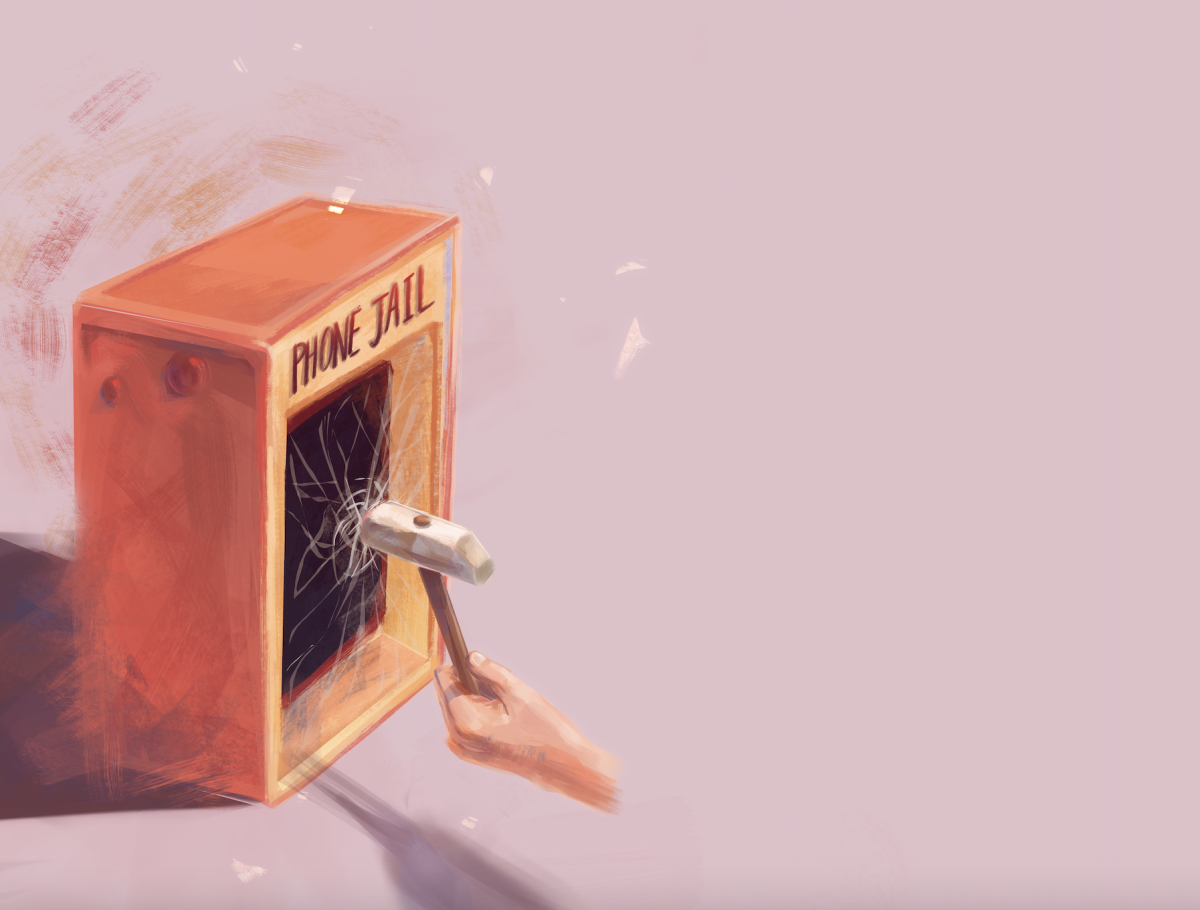Every morning, like clockwork, a pattern begins: students shuffle into class, fingers hurriedly tap out last-minute texts, phones slip into numbered pouches that line the wall of each classroom. One by one, devices disappear and students are left empty-handed at their desks.
In a bold move aimed at improving academic performance and minimizing distractions, Fairfax County Public Schools (FCPS) implemented a new policy in the 2024-25 school year: completely banning cell phone usage during class time. The FCPS implementation of the new phone policy ban was in response to Virginia Gov. Glenn Youngkin’s issue of Executive Order 33 in July, which directed the Virginia Department of Education (VDOE) to restrict cell phone usage.
Both Youngkin’s executive order and the FCPS phone policy cite reports on the negative effect of cell phone usage on teenage students, advising that decreasing phone access develops greater resilience and leads to more face-to-face interactions.
This is undeniably true.
At Jefferson, students are now more focused than ever, free of the distraction of constant notifications and messages. Student focus and productivity have increased. Solely because of that, the new cell phone policy is a warranted success.
Yet the increasing focus on cell phones within schools seems trivial in the face of other, more significant issues—one of which is student safety. As of Sept. 19, there have been 50 school shootings in the United States in 2024, resulting in 24 deaths and 66 injuries, according to an analysis by CNN. Death by gun violence is the leading cause of death for children and teenagers, surpassing automobile accidents, overdoses and suicide. The fear of one’s safety within the school day is a reasonable one, that is often disregarded as inconsequential by those in power.
By eliminating access to cell phones in classrooms, a lifeline that parents have to make sure their child is safe gets cut off. For many students in case of emergencies, having access to one’s phone can be the only way to communicate with their family.
It is important to note that school policy dictates cell phones must be silent and all communication go through the school during emergencies. However, simply knowing that a student has access to their phone fosters feelings of safety rather than constant fear during the school day. A student fearing for their own safety would be a hindrance to the very focus during the school day that the cell phone ban attempts to foster.
Jefferson strikes the perfect balance between the two with loose, open pouches—a luxury not all schools have. Phones are out of sight, which promotes focus and engagement throughout class periods, yet are still accessible should an emergency arise. Not all schools in Virginia abide by the phone policy in a similar way, instead opting for locked pouches or boxes.
Jefferson is fortunate in our current policies relating to cell phone usage throughout the school day and we benefit from going to one of the safest schools in the state. Yet school safety is still one of the greatest concerns for Jefferson students. It is not difficult to imagine, then, the concerns of other students throughout Virginia, especially from schools looking to implement locked pouches or boxes.
The cell phone policies are undoubtedly a necessary step in improving the education of all students, but there is a line. To maintain safe practices while still benefiting from the lack of distractions, phones ought to be out of sight but not completely out of reach. We must not disregard safety in an attempt to ban cell phones.
From the October 2024 Issue of tjTODAY

